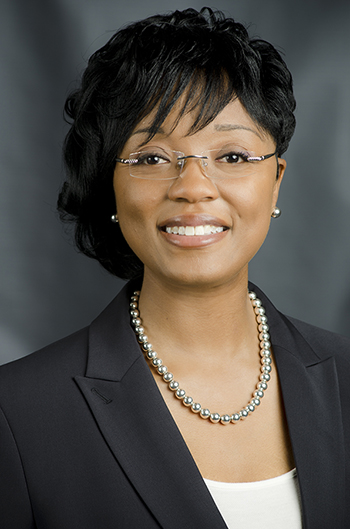
Tiffany Taylor
When Tiffany Taylor, director of Teach for America – Detroit, first received an email inviting her to join the advisory board for USC Shoah Foundation’s IWitness Detroit program, she admits it was the first time she had heard of IWitness.
But one line in the email caught her eye: “testimony-based education.” Taylor said she was intrigued by this idea and thought immediately about its potential for strengthening the educational movement in Detroit by uplifting student voices in a way that only firsthand experiences can.
IWitness Detroit is a two-year effort that focuses on the development of local capacity through teacher education, programming for students and key academic resources to engage students in learning through eyewitness testimony, delivering a multimedia educational experience which builds core knowledge, 21st century digital literacies, critical thinking and empathy. The program’s advisory board includes leadership of The Henry Ford Museum, Henry Ford Academy, USC Shoah Foundation, Boys and Girls Clubs of Southwestern Michigan and other local educational organizations.
One of the first activities of IWitness Detroit was a workshop for students at the Henry Ford Museum and Henry Ford Academy August 13 and 14. Local students toured the museum’s Liberty and Justice for All exhibit and then completed a new IWitness activity “Finding Your Seat on the Bus.” Through the testimonies of Holocaust survivor Kurt Messerschmidt, American politician Elizabeth Holtzman, and liberators Leon Bass and Paul Parks, students learned about the combination of characteristics, grit and determination it takes to be a social innovator and to make a difference.
Taylor attended the workshop and actually participated in it alongside the students. She was amazed by IWitness’s ability to teach students about the challenges they face in their own lives and how they can overcome them. She believes there is power in teachers using IWitness, not just in social studies or history classes, but across all content areas in order to empower students to tell their own stories and see their role in the broader community.
“When I experienced the workshop firsthand I realized the power of building foundational skills that help students to better understand history and to elevate their own voices,” Taylor said. “This interactive learning pushes them to see why their leadership – and their unique voice – is so desperately needed.”
Taylor said she observed and talked to students at the workshop who had strong reactions to the material. There were many “aha” moments, when students seemed to realize, for the first time, how obstacles like systemic racism and disenfranchisement had affected them and their families. At the same time, the IWitness activity taught them that, as one student put it, “beautiful things can grow from not so beautiful places.”
One boy, she remembered, was particularly affected by what he learned.
“It was almost as if he was upset he hadn’t learned this before,” Taylor said. “I think that’s powerful because it speaks to the hunger that our kids have for history and the hunger they have for being able connect the past to what they’re experiencing today. This is important because it adds validity to their voice, and lets them know that they are not alone.”
After experiencing IWitness firsthand, Taylor is committed to ensuring the teachers that Teach For America recruits, trains, and supports in Detroit have access to this program. She believes IWitness can inspire students to apply lessons of history to their own lives and motivate them to become the next leaders of their community.
“For Detroit to prosper, we need our children to rise up and lead. The IWitness experience can change students’ lives,” Taylor said. “There are moments when someone may ask that one question, propose a new idea, or encourage a child to think about something in a new way. This program could inspire so many students – in this way and chart a new future for our children and our city.”